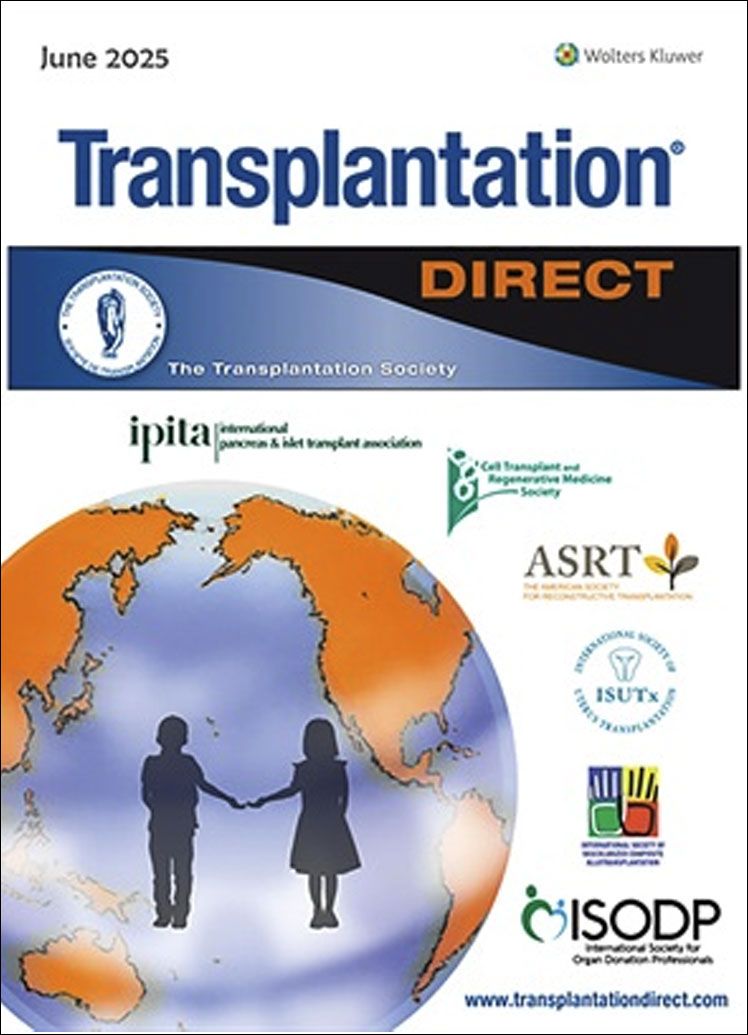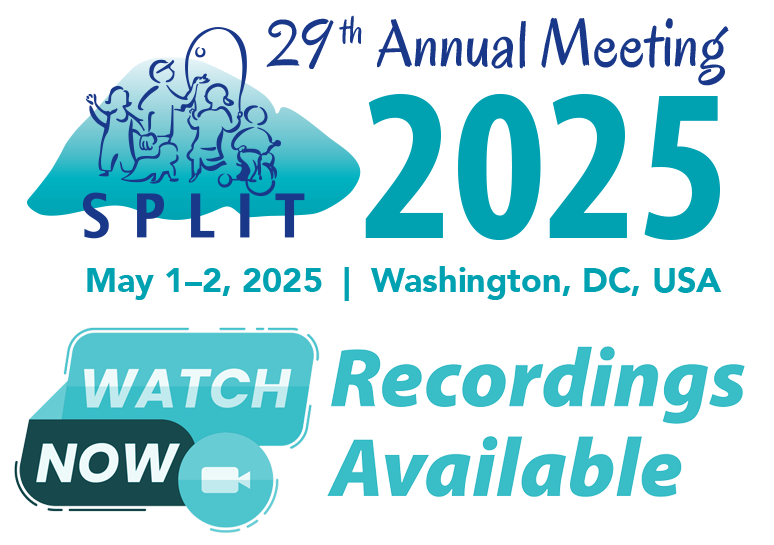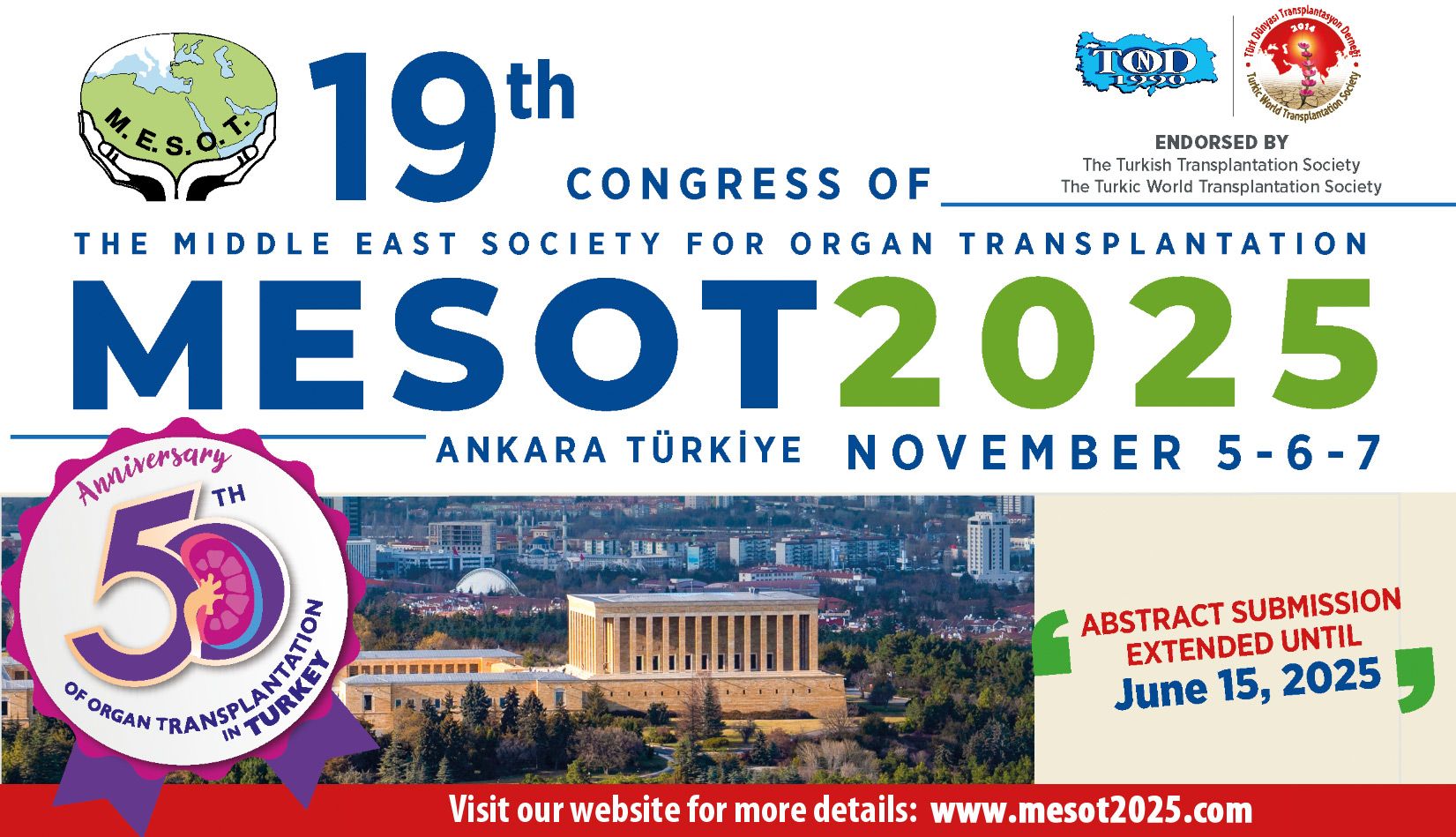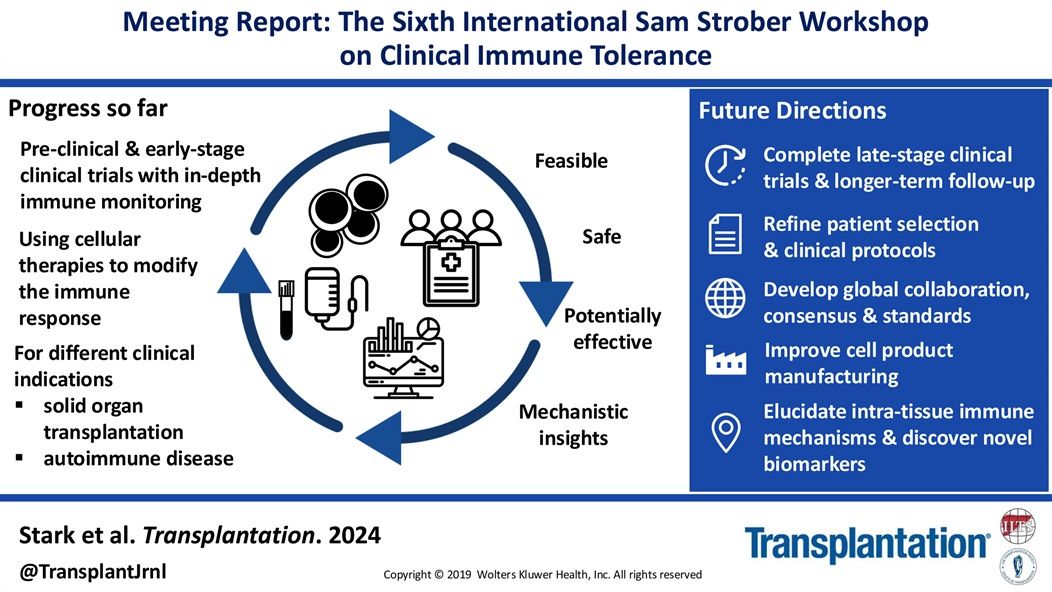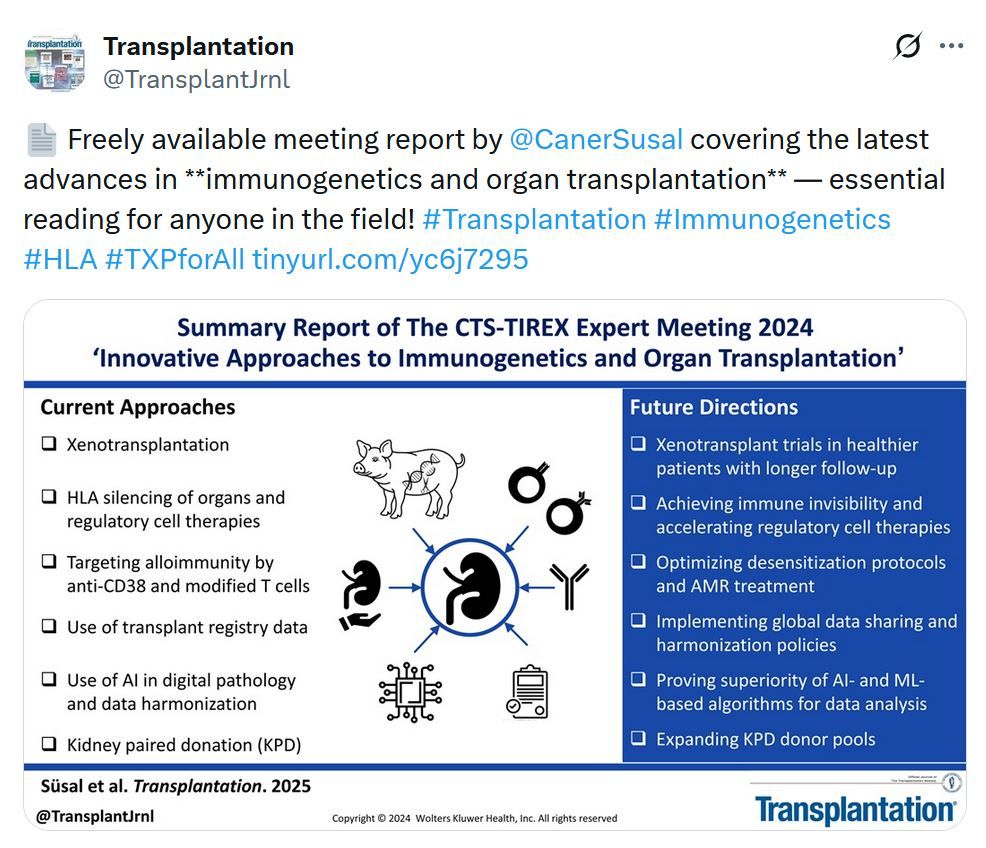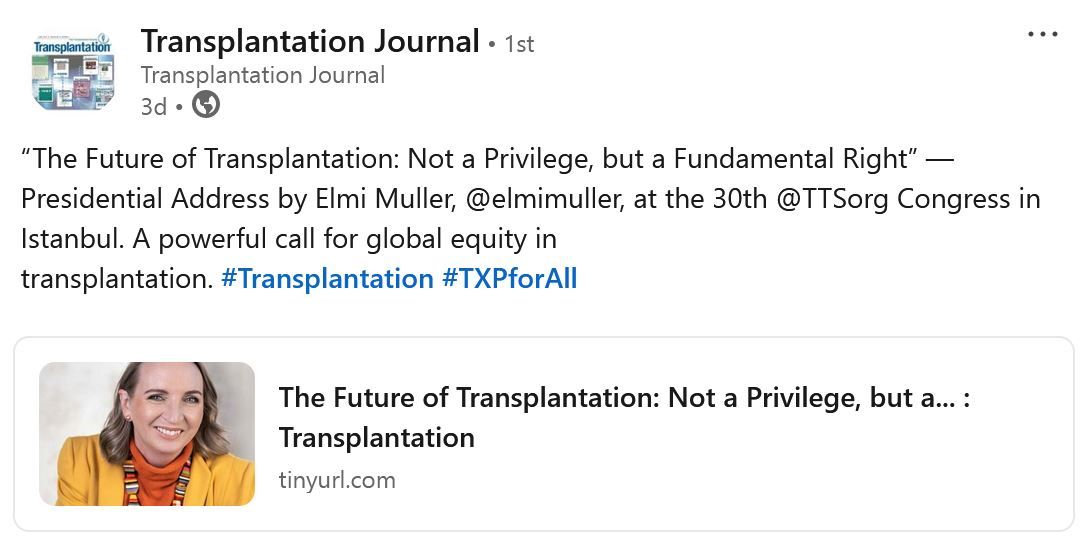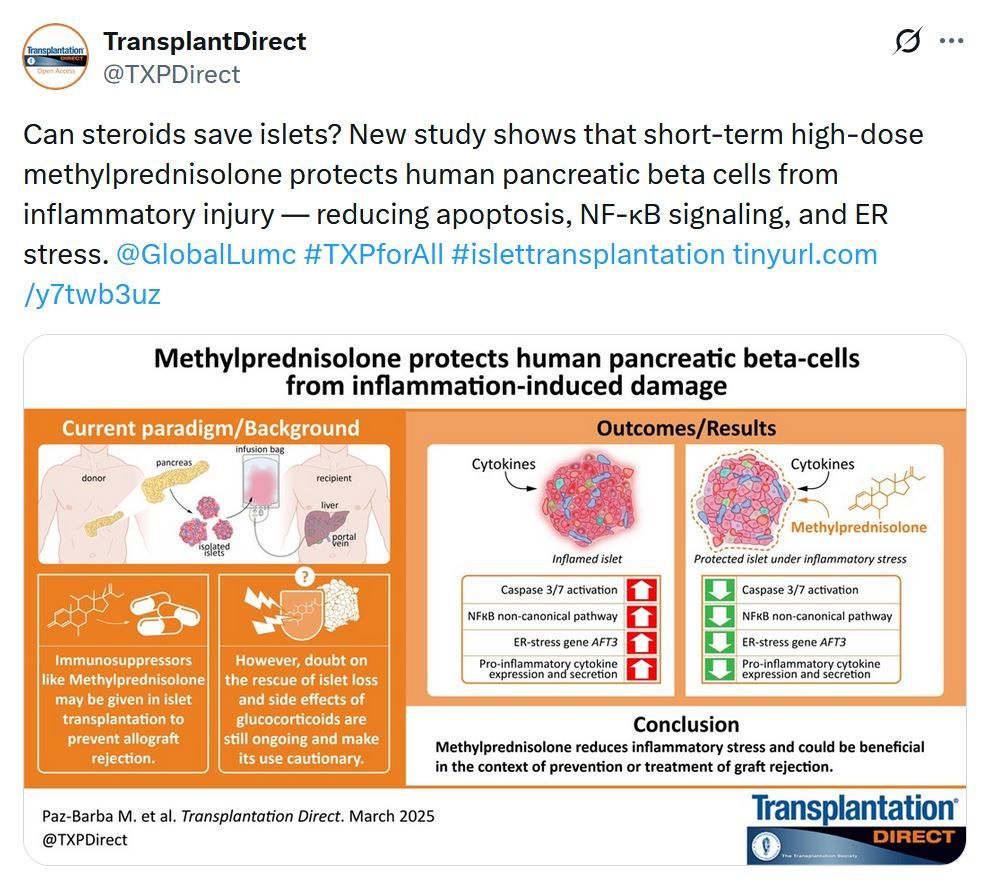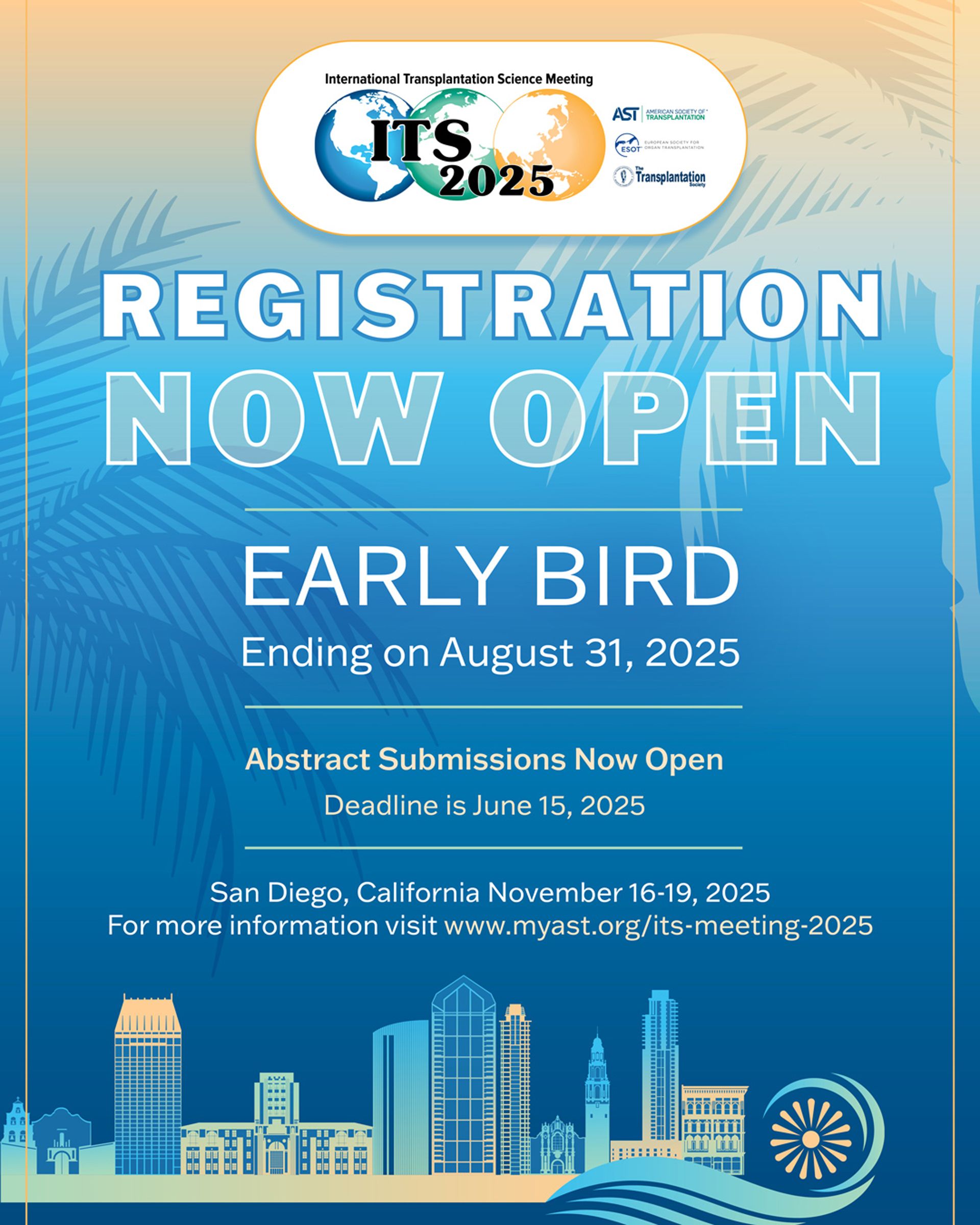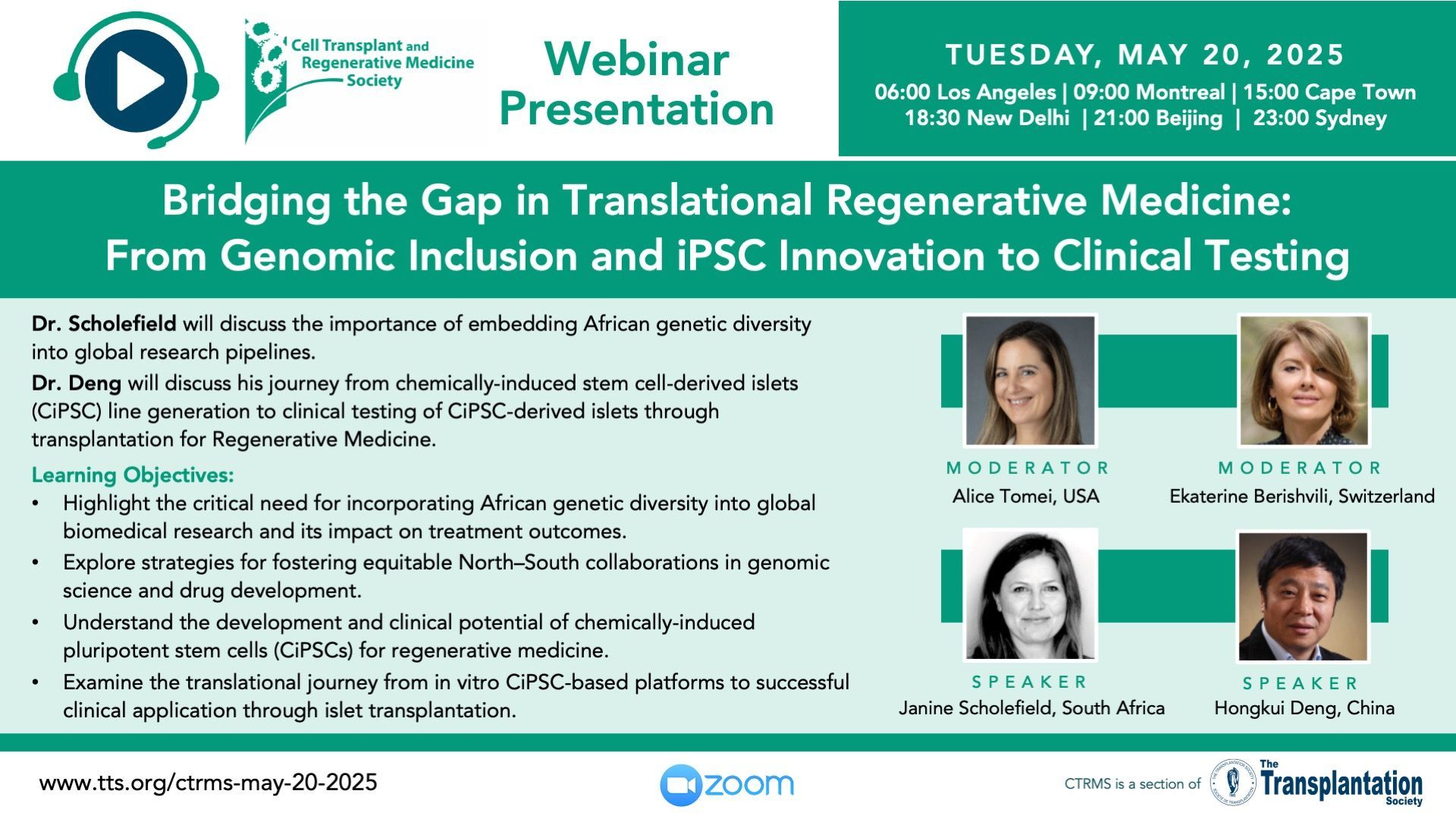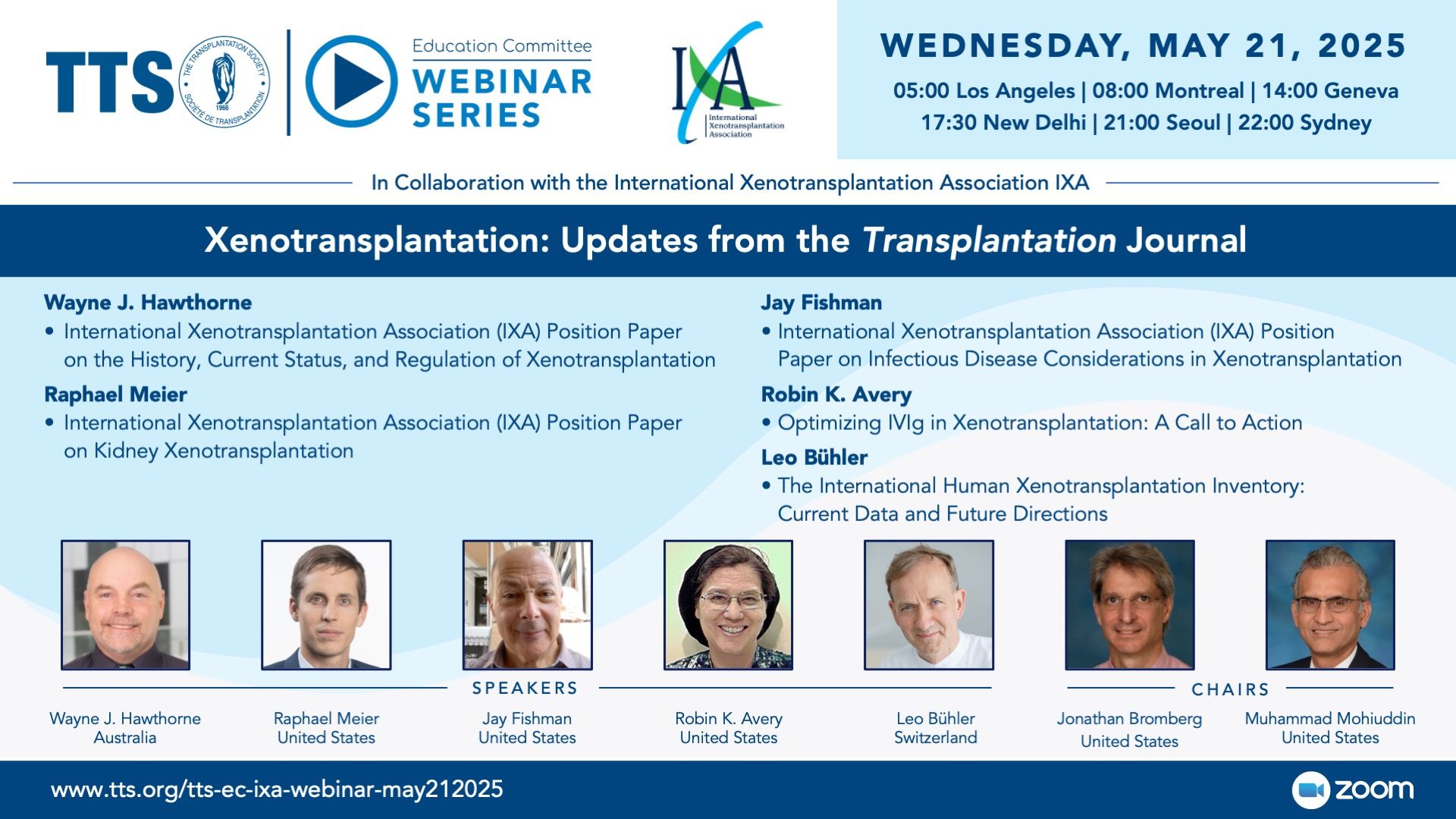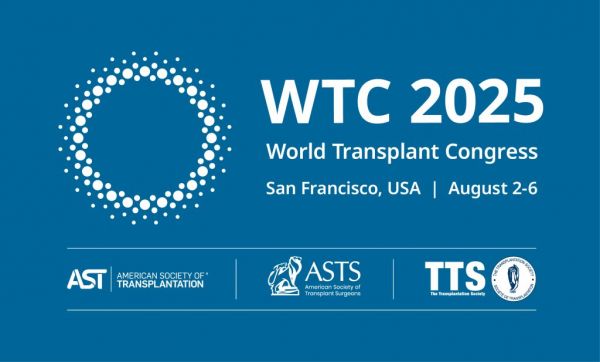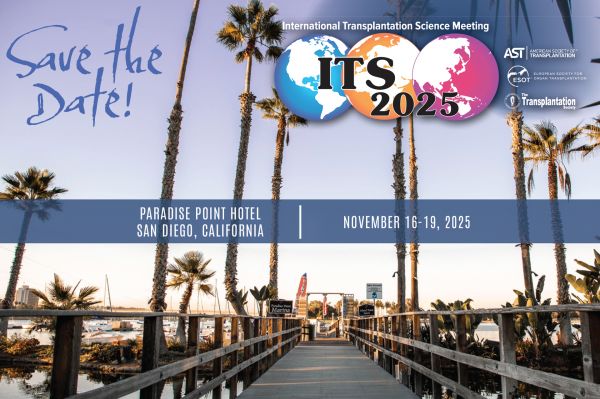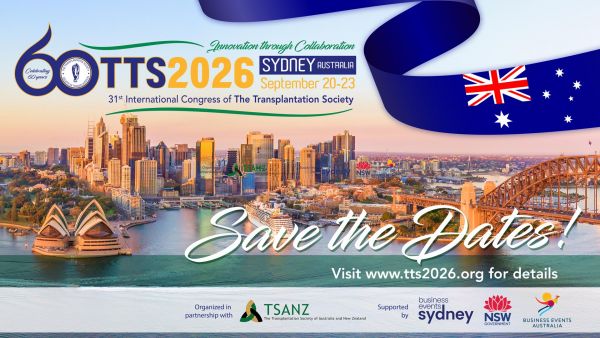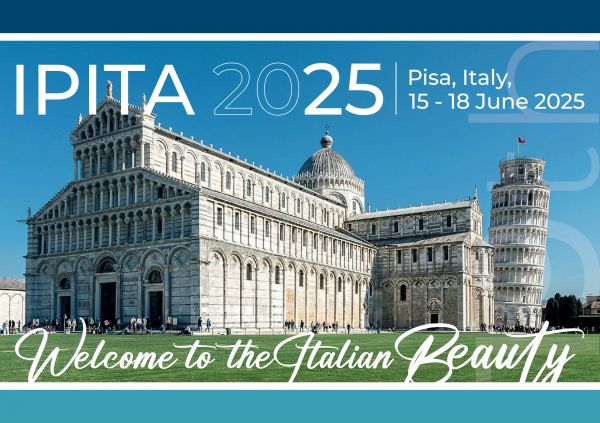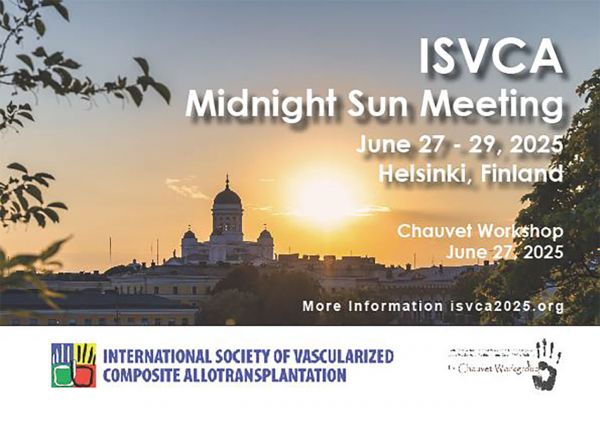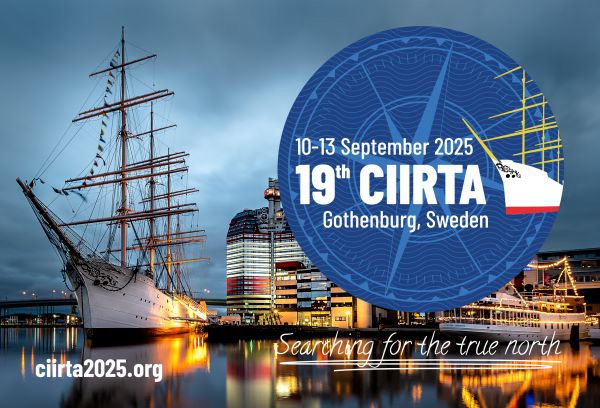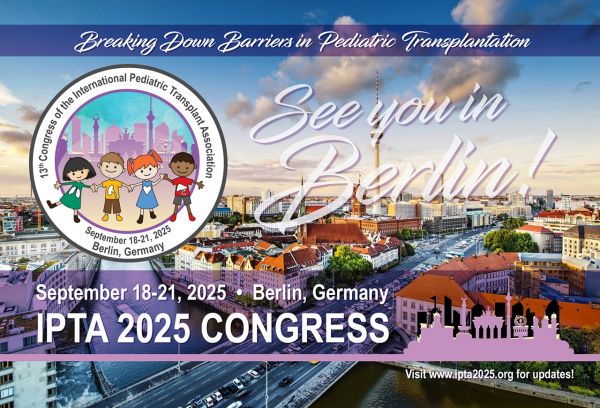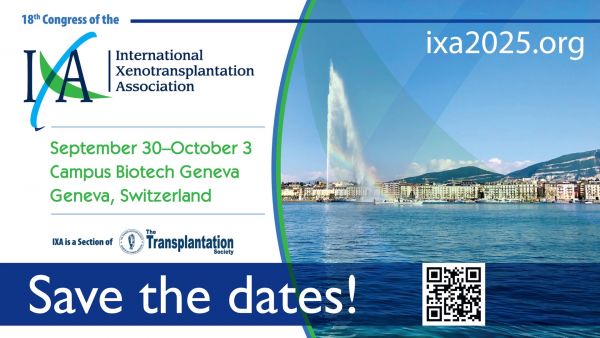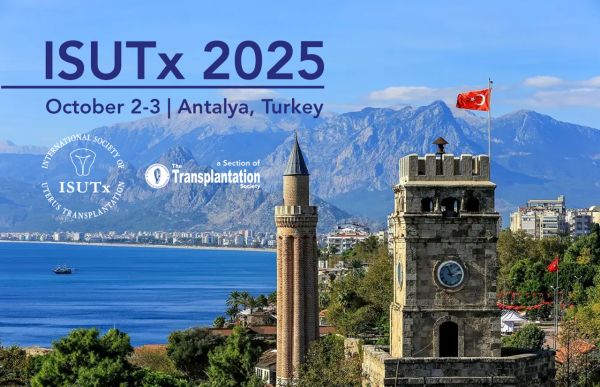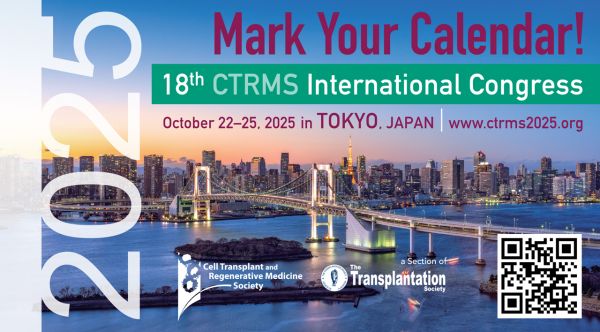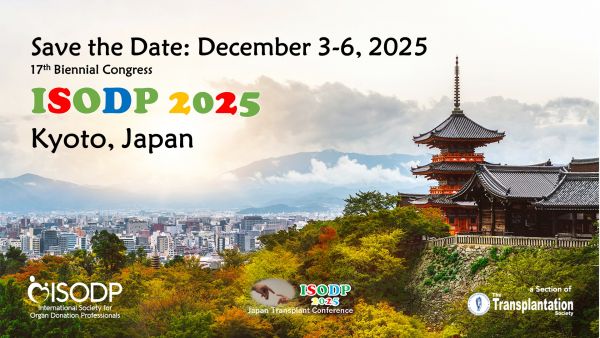
Announcing the Winners of the WTC 2025 Student Ambassador Program!

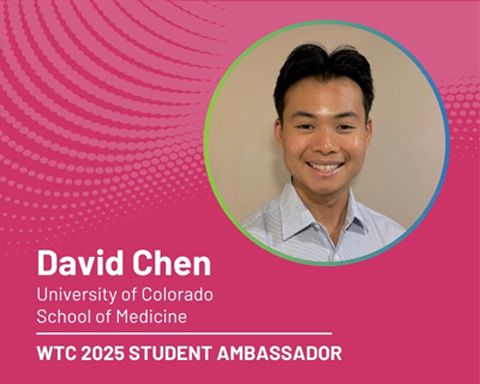
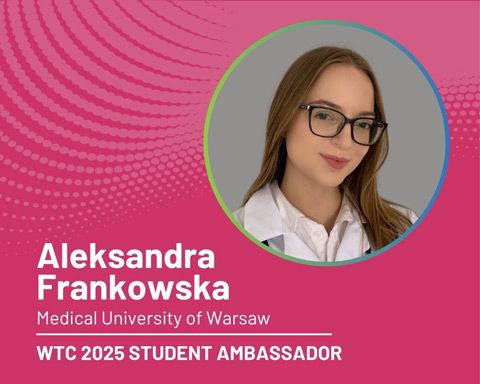
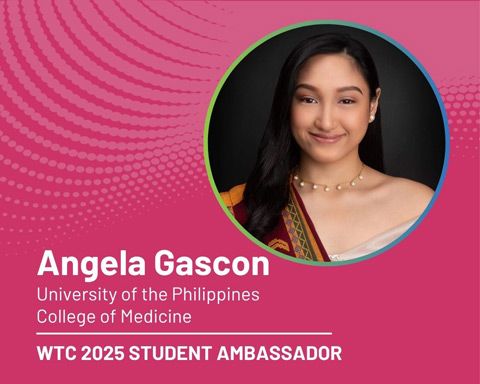
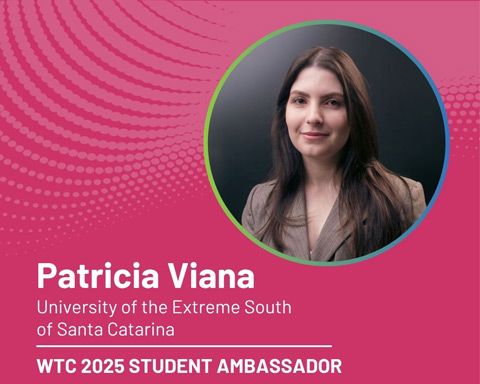
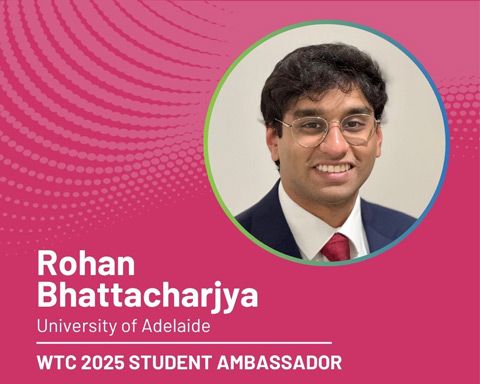
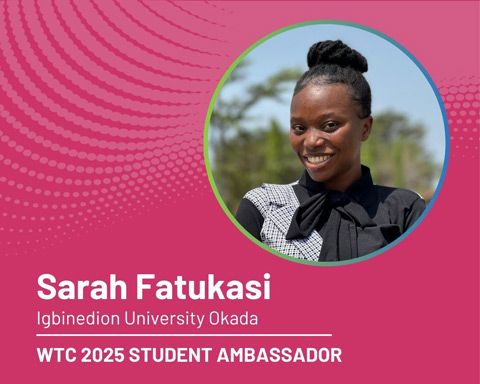
Have You Registered to WTC?
Secure Your Hotel Room for WTC 2025 Before They're Gone!
JUST RELEASED - Transplantation Direct - June 2025 Issue
The June issue of Transplantation Direct is ready for everyone to access.
Covered in this issue under the topic of liver transplantation is a report on the risk for kidney injury when using intraoperative vasopressors, on combining normothermic machine perfusion as support for liver transplants in patients also requiring cardiothoracic surgery, and on immunosuppression costs in the U.S. compared to other G7 countries and Australia. In kidney transplantation, studies examine the prediction of transplant outcomes when using a combined body mass and surface area assessment scheme, and evaluate data from a trial using pegloticase to treat gout in allograft recipients; two papers look at immunosuppression adherence, where one reports on feasible methods to monitor adherence and identify high risk patients, while the other tests whether tacrolimus intrapatient variability is associated with electronically and self-reported adherence in adolescent/young adult recipients. On the topic of lung transplantation, we publish a proteomic analysis of transbronchial tissue biopsies that identifies novel biomarkers of early CLAD, and offer a quality of life analysis of how transplantation actually affects the lives of patients. For those interested in pancreas and islet transplantation, methylprednisolone treatment is assessed for its ability to protect beta-cells from damage. Regarding organ donation, a cautionary experience using hepatitis C infected organs is shared. Finally, an interesting point of view is given about whether we are ready to use of AI in transplantation. Full access to these articles and more can be found on our open-access Transplantation Direct website – please visit us soon.
CLICK HERE TO ACCESS THIS ISSUE
TTS MEMBERS - CLICK HERE TO SIGN-IN FOR OPEN ACCESS THROUGH TTS.ORG
2025 SPLIT Meeting Recordings are now available online for SPLIT and TTS members
Transplantation Journal Highlights
In View Podcast - Meeting Report - In Collaboration with TTS Education Committee
Helen Stark and Quan Yao Ho discuss highlights from the Sixth International Sam Strober Workshop on Clinical Immune Tolerance.
- Chimerism trials
- Regulatory T-cell transfer therapies
- Next-generation regulatory T-cell therapies
- Dendritic cell therapies
- Immunosuppression weaning/biomarkers and monitoring
- Autoimmunity
- Conclusions and future directions
Transplantation Journal - Social Media Content
Transplantation Direct - Social Media Content
ITS 2025 Abstracts and Registration
Join us for the 2025 International Transplantation Science meeting (ITS 2025) and connect with the leading global transplantation community!
On behalf of AST, ESOT and TTS, we wish to extend to you a warm welcome to the 2025 International Transplant Science meeting in San Diego, California USA.
This is the fourth of the ITS tri-society meeting series in collaboration with ESOT and TTS. This meeting will provide a wonderful opportunity for transplant researchers to learn from outstanding international speakers while visiting this stunningly beautiful region of the world.
The ITS 2025 will provide a forum for presentations and discussions of cutting-edge basic and translational science in and beyond transplantation. This meeting will not only serve as an international platform for scientific discussions on the latest ground-breaking discoveries in the field but will also provide an excellent opportunity to present your own work to the scientific community. We hope this will allow for the exchange of new ideas and establishment of collaborative work between senior scientists, young professionals and early-stage researchers.
CTRMS 2025 - Abstract Deadline Extended


Missed the deadline? You still have time!
We’re extending the call for abstracts until June 15 giving you one last chance to share your research, connect with global experts, and contribute to the future of cell transplant and regenerative medicine.
Just Released - IXA Newsletter - June 2025
Read updates from IXA 2025 Geneva -- Registration Now Open! -- as well as other news from the International Xenotransplantation Association.
In Case You Missed It...
Contact
Address
The Transplantation Society
International Headquarters
740 Notre-Dame Ouest
Suite 1245
Montréal, QC, H3C 3X6
Canada
Используйте Вавада казино для игры с бонусом — активируйте промокод и начните выигрывать уже сегодня!

